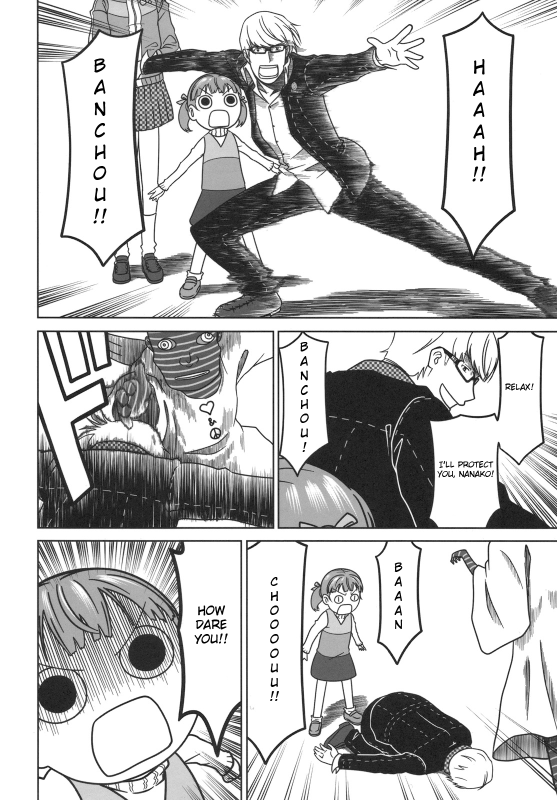Be careful quoting the semantics of my translation since I'm not a very literal person as a translator at all.

But I've seen a lot of people here and elsewhere quote that line in particular at face value, so here's what he originally said first in Japanese so any other Japanese speakers in the thread can know I'm not making things up with respect to what I have to say next:
Here's an alternate translation of what he said in a more literal sense: "There's something to be said for developing the game such that players who liked P3 and P4 can come into this without feeling out of their element and can just readily enjoy this new game. Hopefully those fans can rest assured that we have them in mind."
The key phrase in the original Japanese is 「違和感なく」, literally "without feeling something off" or something along those lines. You'll have to take me at my word at this point, but the way Hashino words it in Japanese indicates less to me that he and his team are interested in a complete mechanical and tonal retread of P3 and P4 so much as just making a game where people who got into the series through those games can basically look at 5 and recognize it as a Persona game in its own right.
The big point about that Hashino interview that I maybe should have made more clear when I initially posted my translation was that in terms of the back-and-forth and how Hashino articulates his answers, it was very much so a piece that was originally designed for Japanese consumption. The language just has mechanics embedded within it where it's okay to not explicitly express everything you mean to say when you have a reasonable assumption that your audience is already aware of the basic context and cultural nuances informing the content of what's being spoken. As a translator, I don't think you can do Hashino's personality and his deliberately substantial, but ambiguous answers justice by translating it literally because he wants you to try and read things between the lines of things that he both says out loud
and remains quiet on. And try as I might have to make his answers play more naturally in English, it's hard to get away from the fact that English doesn't share those same conventions about subtlety or silently understood subjects, so a lot of people who aren't necessarily informed into those differences approach that interview as though it was always meant to consumed by them from the start under their cultural expectations when it wasn't at all. I'm not faulting people at all who take who my answers overly literally since it's just a natural way to respond to that content in general if you haven't been brought up around Japanese conversational culture, so to speak.
I'm still really proud that interview when it comes to my hobbyist work, but the interpretations I've seen from the media and elsewhere have given me a lot to think about moving forward because at the end of the day, it's still totally my job to make those nuances and underlying attitudes apparent in English even if you don't have a background like mine. Hopefully the June issue of the magazine has another fun interview like that to work on so I can get a second shot at improving my translation skills in that respect.







